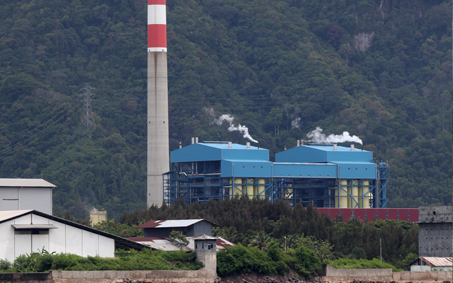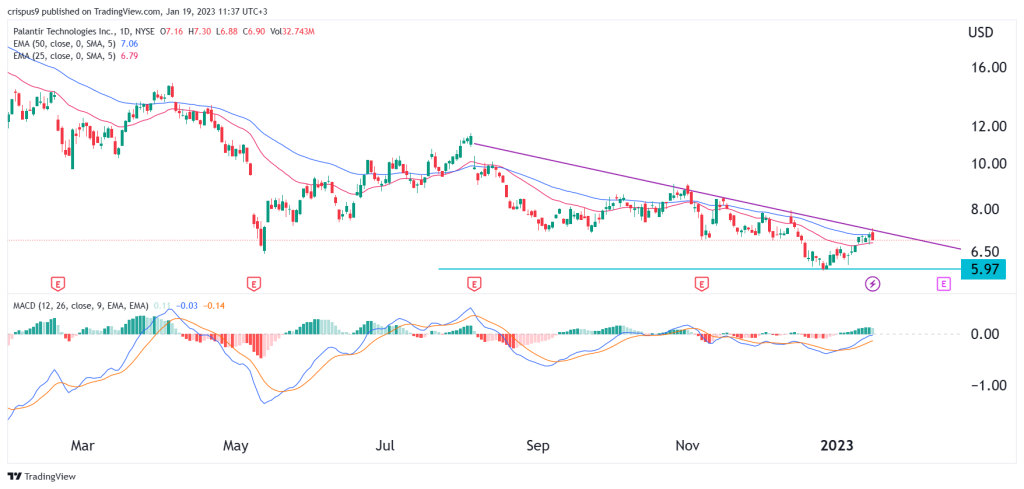Indonesia Reserve Holdings Fall: Impact Of Rupiah Depreciation

Table of Contents
Factors Contributing to the Fall in Indonesia's Reserve Holdings
Several factors contribute to the decrease in Indonesia's foreign exchange reserves, placing pressure on the Indonesian Rupiah and impacting the nation's economic stability.
Increased Import Demand
Indonesia's reliance on imports, coupled with rising global commodity prices, significantly impacts its foreign exchange reserves. The increased demand for foreign currency to pay for these imports puts immense pressure on the reserves.
- Increased energy import costs: Indonesia's energy sector relies heavily on imports, making it particularly vulnerable to global price fluctuations. Rising global oil and gas prices directly translate to a higher demand for US dollars and other foreign currencies.
- Higher demand for capital goods: Indonesia's ongoing infrastructure development necessitates substantial imports of capital goods, further increasing the demand for foreign currency. This includes machinery, equipment, and technology essential for various industries.
- Impact of global supply chain disruptions: Global supply chain disruptions, particularly in the wake of recent geopolitical events, have exacerbated the issue, increasing import costs and putting more pressure on the foreign exchange reserves.
Capital Outflows
Uncertainty in the global economy and shifts in investor sentiment can trigger capital flight from emerging markets, including Indonesia. This outflow of foreign investment reduces foreign exchange reserves.
- Impact of global interest rate hikes: Interest rate hikes by major central banks, like the US Federal Reserve, often lead to capital outflows from emerging markets as investors seek higher returns in developed economies. This capital flight puts downward pressure on the Rupiah.
- Flight to safety: During periods of global economic uncertainty, investors often move their capital to perceived "safe haven" assets, such as US Treasury bonds, leading to capital outflows from riskier emerging markets.
- Reduced foreign direct investment (FDI): Economic uncertainty and currency volatility can deter foreign direct investment, reducing the inflow of foreign currency and impacting the overall level of reserves.
Intervention by Bank Indonesia (BI)
Bank Indonesia, Indonesia's central bank, may intervene in the foreign exchange market to stabilize the rupiah. This often involves selling foreign exchange reserves to support the currency's value, further depleting the reserves.
- Effectiveness of intervention: The effectiveness of BI's interventions depends on various factors, including the scale of intervention, market conditions, and the overall global economic climate. Sustained interventions can significantly deplete reserves.
- Trade-off between reserve depletion and currency stability: BI faces a difficult trade-off: maintaining currency stability through reserve sales versus preserving a sufficient level of reserves to act as a buffer against future shocks.
Impact of Rupiah Depreciation on the Indonesian Economy
The depreciation of the Indonesian Rupiah has far-reaching consequences for the Indonesian economy.
Inflationary Pressures
A weaker rupiah increases the cost of imported goods, potentially fueling inflation and reducing consumer purchasing power.
- Impact on food prices: Indonesia imports a significant portion of its food, making it highly vulnerable to price increases caused by rupiah depreciation.
- Energy costs: As mentioned earlier, energy imports are a significant component of Indonesia's import bill. A weaker rupiah exacerbates the impact of rising global energy prices.
- Imported raw materials: Many Indonesian industries rely on imported raw materials, making them vulnerable to increased costs due to rupiah depreciation.
Impact on Trade Balance
While a weaker rupiah can theoretically boost exports by making Indonesian goods more competitive, the overall impact on the trade balance is complex and depends on the price elasticity of demand for both exports and imports.
- Analysis of export competitiveness: The extent to which a weaker rupiah boosts exports depends on the international demand for Indonesian goods and the ability of Indonesian producers to increase production.
- Potential for increased export revenue: Increased export revenue can partially offset the negative impact of higher import costs, but this effect is not guaranteed.
Impact on Foreign Investment
Currency volatility can deter foreign investors, impacting investment inflows and potentially slowing economic growth.
- Investor confidence: A volatile currency can erode investor confidence, making Indonesia a less attractive investment destination.
- Risk assessment: Increased currency risk increases the perceived risk associated with investing in Indonesia.
- Impact on long-term investment decisions: Currency volatility can discourage long-term investments, as investors seek more stable investment environments.
Potential Solutions and Policy Responses
Addressing the challenges posed by the fall in Indonesia's reserve holdings and rupiah depreciation requires a multifaceted approach.
Diversification of Exports
Reducing reliance on specific commodities and diversifying export markets can enhance the resilience of the Indonesian economy to external shocks.
- Promoting non-commodity exports: Developing and promoting non-commodity exports, such as manufactured goods and services, can reduce vulnerability to global commodity price fluctuations.
- Improving export infrastructure: Investing in infrastructure, such as ports and logistics, is crucial to facilitate efficient export processes.
Strengthening Domestic Production
Boosting local production of essential goods can reduce dependence on imports and mitigate inflationary pressures.
- Investing in infrastructure: Improvements in infrastructure, including energy and transportation, are crucial to support domestic production.
- Supporting local businesses: Policies supporting local businesses, including access to finance and technology, can stimulate domestic production.
Monetary Policy Adjustments
Bank Indonesia can adjust its monetary policy to manage inflation and maintain currency stability.
- Interest rate adjustments: Increasing interest rates can attract foreign investment and stabilize the rupiah, but it may also slow economic growth.
- Managing liquidity in the banking system: Careful management of liquidity in the banking system is essential to prevent excessive inflation or deflation.
Conclusion
The decline in Indonesia's reserve holdings and the resulting rupiah depreciation present significant challenges to the Indonesian economy. Understanding the contributing factors and their impact on inflation, trade, and investment is crucial for effective policy responses. A multifaceted approach, including export diversification, strengthening domestic production, and appropriate monetary policy adjustments, is necessary to mitigate the negative consequences and safeguard the long-term health of the Indonesian economy. Continuous monitoring of Indonesia’s reserve holdings and the rupiah exchange rate is crucial for investors and businesses. Proactive management of these factors is key to navigating future fluctuations in Indonesia's foreign exchange reserves and ensuring the stability of the rupiah.

Featured Posts
-
 Vegas Golden Knights Win Adin Hills Strong Performance Secures Victory Against Columbus
May 09, 2025
Vegas Golden Knights Win Adin Hills Strong Performance Secures Victory Against Columbus
May 09, 2025 -
 Le Rapprochement Renaissance Modem Les Enjeux De La Fusion Pour Elisabeth Borne
May 09, 2025
Le Rapprochement Renaissance Modem Les Enjeux De La Fusion Pour Elisabeth Borne
May 09, 2025 -
 Federal Investigation Millions Stolen Through Executive Office365 Compromises
May 09, 2025
Federal Investigation Millions Stolen Through Executive Office365 Compromises
May 09, 2025 -
 Golden Knights Blank Jackets 4 0 Behind Hills 27 Save Performance
May 09, 2025
Golden Knights Blank Jackets 4 0 Behind Hills 27 Save Performance
May 09, 2025 -
 Is A 40 Increase In Palantir Stock By 2025 Realistic
May 09, 2025
Is A 40 Increase In Palantir Stock By 2025 Realistic
May 09, 2025
Latest Posts
-
 Harry Styles New Mustache A 70s Vibe In London
May 09, 2025
Harry Styles New Mustache A 70s Vibe In London
May 09, 2025 -
 Nottingham Attacks Police Misconduct Meeting Scheduled
May 09, 2025
Nottingham Attacks Police Misconduct Meeting Scheduled
May 09, 2025 -
 Singer Harry Styles Spotted With A Seventies Style Moustache In London
May 09, 2025
Singer Harry Styles Spotted With A Seventies Style Moustache In London
May 09, 2025 -
 Officers Face Misconduct Meeting Nottingham Attacks Investigation
May 09, 2025
Officers Face Misconduct Meeting Nottingham Attacks Investigation
May 09, 2025 -
 Harry Styles Debuts Retro Mustache During London Appearance
May 09, 2025
Harry Styles Debuts Retro Mustache During London Appearance
May 09, 2025
